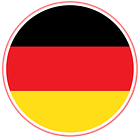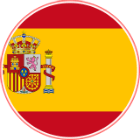
Europe is pretty much a single state when it comes to economic matters. However, regarding legislation, each country has to come up with its laws especially when it comes to gaming. There are no standard betting regulations across European countries, and this makes it hard for one to grasp the gaming regulations across the nations. Many betting companies exist on this continent, but different rules apply to the companies in the various countries. As such, before getting into gaming, it is necessary that you read through the gaming regulatory conditions in your state.
Online Gaming
Nowadays, people are moving towards paperless gaming and are embracing online gaming at a fast rate. This kind of gaming is convenient in that you can make transactions from the comfort of your phone. However, this betting is also subject to gaming regulations which fall under gaming jurisdictions. Europe is home to a considerable number of gaming jurisdictions. Some of these jurisdictions are part of the EU and thus are subject to stipulations in the union while others are independent and are therefore free to formulate their rules. Per authority, there is a body that approves and regulates gaming licenses. The following jurisdictions exist in Europe: Malta, Isle of Man, Alderney, and Gibraltar.
The European Gaming and Betting Association
This association, also known as the EGBA, was put up in a bid to regulate the gaming market such that the operators would be fair in their operations. It began in 2007 and has since grown owing to the increase in gaming companies over the years. Gaming is a hard industry to regulate, and the body has experienced challenges over the years as it tries to make the sector competitive and just. However, in spite of the obstacles in their way, they have achieved some members. In time, they will increase their membership, and this will enable them to have a significant impact on the industry.
Let’s have a peek at a few of the gaming laws applicable to European Countries
France

There is a lot of gaming in France, and as such, three bodies exist to regulate betting in the country. There is the ARJEL which handles online betting, the Francaise des Jeux which deals with lotteries and other games and there is the Pari Mutuel Urbain which manages bets on horse races. With these bodies in place, the market has reasonable regulations, and it reduces the number of illegal bets taking place in the country. Online gaming is relatively new in the state, having come about in 2010. In France, you can participate in pool betting, fixed odds betting, live betting, poker, and pool betting in the online space.
Germany

Gamblers in Germany are subject to some complex regulations aimed at curbing the rise of betting. In fact, in 2008, the government passed legislation outlawing all forms of online gaming and betting save for horse racing bets. Gamblers, therefore, got left with the choice of placing wagers on horse races or games offered by the state. The EBGA moved in stating that the law was not in line with the EU regulations. As such, in the year 2012, other players were able to gain entry into Germany’s gaming industry.
Spain

The gaming regulations in Spain are ever-changing, and one never knows what to expect next. There was a breakthrough in 2012 when the then government allowed outside parties to apply for licenses to operate betting operations in the country. This move allowed big names to move into the state and Spanish residents were able to place wagers, thus leading to the growth of betting in the country.
Italy

When compared to other countries in Europe, the gaming laws in Italy are more relaxed, and this allows for gaming practices to thrive in the country. Back in 2006, many European countries focused on shutting down gaming practices by coming up with stringent regulations. At this time, Italy concentrated on allowing companies to set up online gaming sites which led to the growth of gaming in the country. Over time, games such as poker and casino games became legal, providing residents with a wide array of options from which to choose.
Over time, some European countries have relaxed their regulations on gaming such as Czech and Poland while others have tightened their grasp such as Sweden. Other countries such as Norway have made it possible for residents to participate in gaming, but only in the state-provided games. More changes are yet to come as nations battle with the decision on what is best for their residents. Gamers can only wait and hope that the reforms will be for the better.
